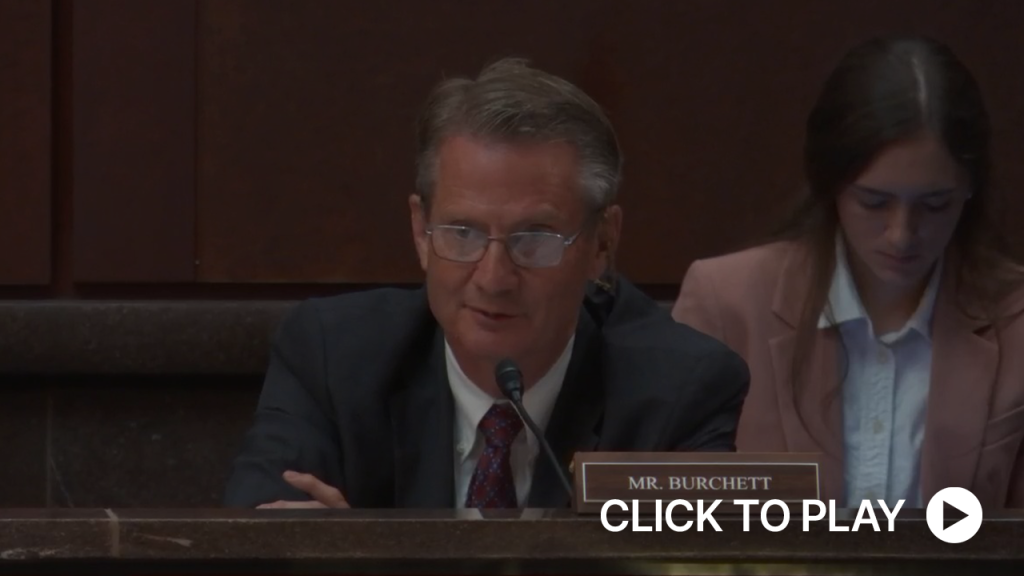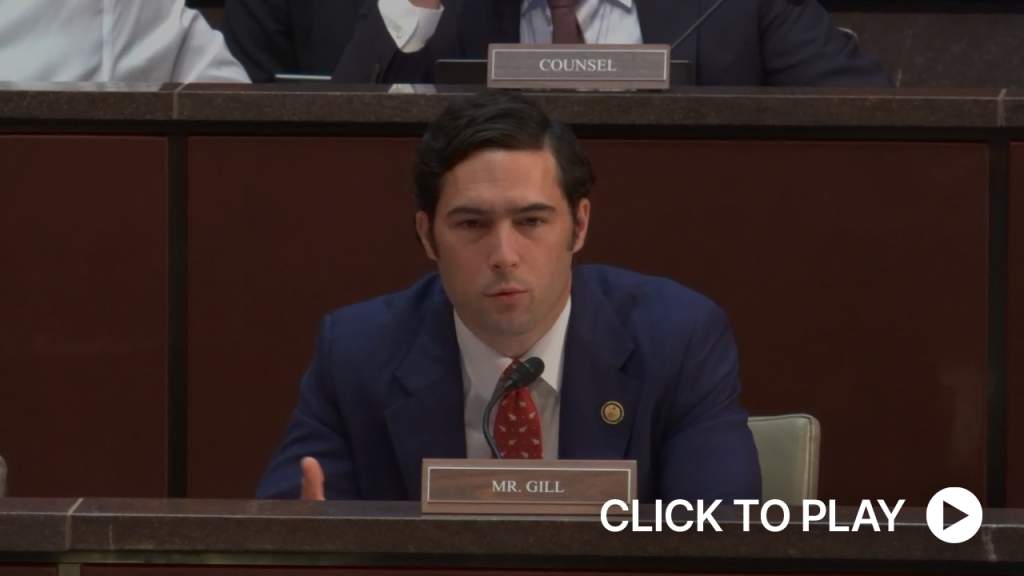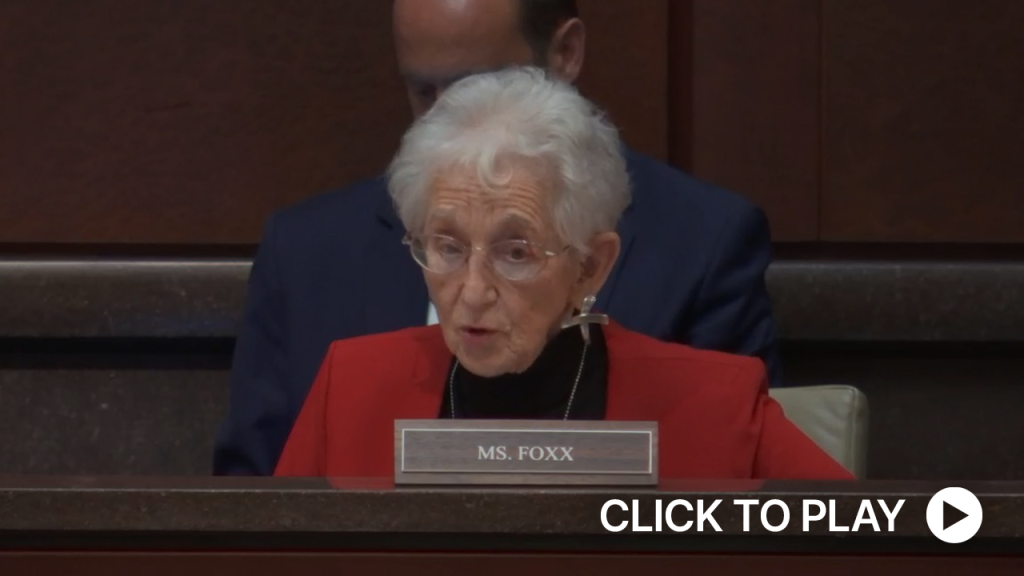
Hearing Wrap Up: Congress Must Close Loopholes and Reform Bid Protest Process
WASHINGTON—Today, the Subcommittee on Government Operations held a hearing titled “Bid Protest Reform: Understanding the Problem.” During the hearing, members discussed the current bid protest process and examined proposals to reform it to prevent further abuse by government contractors. Members also highlighted opportunities for Congress to improve transparency in the bid protest process to deter protests.
Key Takeaways:
While the current bid protest process can be useful, it is also abused, expensive, and subject to significant delays.
- Christopher Yukins, Research Professor at George Washington University School of Law, stated in his opening testimony, “Bid protests have proven effective nationally and internationally because they allowed those with the best information on procurement failures, typically other bidders. To bring procurement failures to light, those protesting bidders in essence serve as whistleblowers on fraud, waste, and corruption. Impairing protests, in essence, [discourages] whistleblowers, would undermine bid protests core goals, which are one—to reinforce confidence in the competitive process, and two— identify management failures in the procurement system. Bid protests can be flash points of contention between agencies and industry and have long been the focus of reform efforts. Those reform efforts are often quite useful, sometimes though, they could have serious and negative unintended consequences.”
There are varying perspectives on the problems that bid protest reform should address. To be effective, legislative reforms must target the most significant issues first.
- Zach Prince, Attorney for Haynes Boone, stated in his opening testimony,“[In] more than half of protests, there’s enough of a perception of a significant error that [the U.S. Government Accountability Office] either rules in favor of the protestor or recommends the agency that they take action in favor of the protestor, or the agency takes the opportunity to do so itself. There are undoubtedly abuses of the system, but the data suggests that those abuses are rare, and remedies are already built into the system. GAO can, and has, in rare instances, blocked protestors from filing new protests.”
Congress must understand the problem at hand and work to improve transparency in the bid protest process.
- Ken Patton, Managing Associate General Counsel for Procurement Law at the U.S. Government Accountability Office (GAO), suggested in his opening testimony that “First, Congress might consider a focused statutory requirement for DOD to include a contract provision that would permit [Department of Defense] to recoup or otherwise withhold profit or fee from where an incumbent contractor filed a protest that is dismissed as legally or factually insufficient. Second, Congress might consider authorizing GAO to require a protestor to reimburse DOD for the costs incurred in handling the protest, as well as any lost profits incurred by the awardee, whose contract was stayed during the pendency of a protest.”
- Zach Prince, suggested in his opening testimony that “Given the critical role that protests have in ensuring public funds are spent fairly and small businesses and new market participants have an opportunity to participate meaningfully, Congress should expand the protest remedy and cut off meaningless disputes about venue, specifically by addressing—as I note in my written testimony—task order protests extending the jurisdiction to the Court of Federal Claims and explicitly recognizing jurisdiction for protests involving other transaction authorities, which are a wonderful mechanism for government advancement of important goals, but can involve billions of dollars annually and could go on overseen without explicit guidance. Congress should also expand the enhanced debriefing requirements.”
Member Highlights:
Rep. Tim Burchett (R-Tenn.) asked if the current bid protest process places unfair burdens on small businesses and stifle economic prosperity.
Rep. Burchett: “Are there any current laws or regulations in the bid protest process that places unfair burdens on businesses and stifle economic prosperity?”
Mr. Yukins: “Yes, sir. Actually, ironically, it’s at the other end of the spectrum and, as the Chairman mentioned, there’s a need to align with what the Trump administration is doing…Other transactions, it’s an oddly named thing, but it basically means starting from scratch. You throw the whole procurement system out the window and you write from scratch. That creates a lot of problems. We teach contracting officers, about one-third of my students are mid-level contracting officers. They have no idea how to negotiate these things, whereas the private counterparts really do. So in many ways, the irony here is it’s not the small business. It’s the government that’s at the disadvantage of the transactions for the reasons you talked about—public credibility and legitimacy. Very important, as Mr. Prince said, to have as much transparency and accountability as possible in other transaction.”
Rep. Brandon Gill (R-Texas) inquired about egregious examples of abuse of the bid protest process, highlighting that the data on abuses in areas such as venue shopping, is severely limited.
Rep. Gill: “Can you provide a couple of examples of some more egregious examples of companies bid protesting?”
Mr. Patton: “In what context? We have protests where we have sustained protests. We have protests where we have denied that there have been some instances, as I think I alluded to before, we did have a [vexatious] protestor who filed numerous—what we might consider meritless—protests, and we debarred that individual company from filing protests at GAO.”
Rep. Gill: “Do you see that happen?”
Mr. Patton: “Not at all, actually. That was an anomaly. And since 2018, when we had implemented our electronic protests docketing system with an intended filing fee, we’ve seen a drop in protests and a drop in repeat filers.”
Rep. Gill: “And that’s what I was about to ask you, It seems like the current process has the potential to create delays, because contractors would file with the GAO first withdraw their case when they anticipate losing and then subsequently initiate a new case with the Court of Federal Claims, and you’re saying that doesn’t happen often, correct?”
Mr. Patton: “I don’t have the data to answer that question, but what I can say is that the Court of Federal Claims has around 200 or so off cases. So, if that’s happening, it’s happening in a very, very small number of cases.”
Rep. Gill: “Gotcha. Do you think the process should be reformed in any way?”
Mr. Patton: “I think that if there are legitimate questions people have about its efficacy, those ought to be explored. And to the extent there are concerns, they should be addressed. But I do think that you, we do need the data to support whatever concerns might be identified.”
Rep. Virginia Foxx (R-N.C.) inquired about how increased transparency in the bid protest process could deter protestors from filing frivolous lawsuits.
Rep. Foxx: “Transparency is always good. In your opinion, if the federal government were to provide additional information to bid protestors, such as enhanced debriefs, would the number of frivolous lawsuits decrease?”
Mr. Prince: “I think, generally, yes, and I think that’s part of why they have gone down over the last decade.”
Rep. Foxx: “What are your suggestions for big bid protest reforms that can reduce costs and frivolous protests, and how can these reforms ensure that legitimate protests are allowed to proceed? Mr. Patton?”
Mr. Patton: “I would say that the agencies need to collect data and determine whether or not they think a protest is meritless or not and provide that data to Congress.”
Rep. Foxx: “Mr. Prince?”
Mr. Prince: “I think greater access to information at the outset to potential protestors.”
Mr. Yukins: “I agree in terms of enhanced debriefings. One of the important things to understand, ma’am, is that ours is a very concentrated system. We have a concentrated Defense Department, very concentrated market. The bar, there’s only Hungary. They have 2,000 procurement lawyers. In the United States, the federal level, we only have about 500. It’s not because Hungarians are smarter, it’s because we work as a very tight community and people act very responsibly as a result. So if we had more information through the briefings responsible, well, lawyers will be working with responsible, well-trained contractors, and they decide not to protest.”
Click here to watch the hearing.
Distribution channels: U.S. Politics
Legal Disclaimer:
EIN Presswire provides this news content "as is" without warranty of any kind. We do not accept any responsibility or liability for the accuracy, content, images, videos, licenses, completeness, legality, or reliability of the information contained in this article. If you have any complaints or copyright issues related to this article, kindly contact the author above.
Submit your press release


